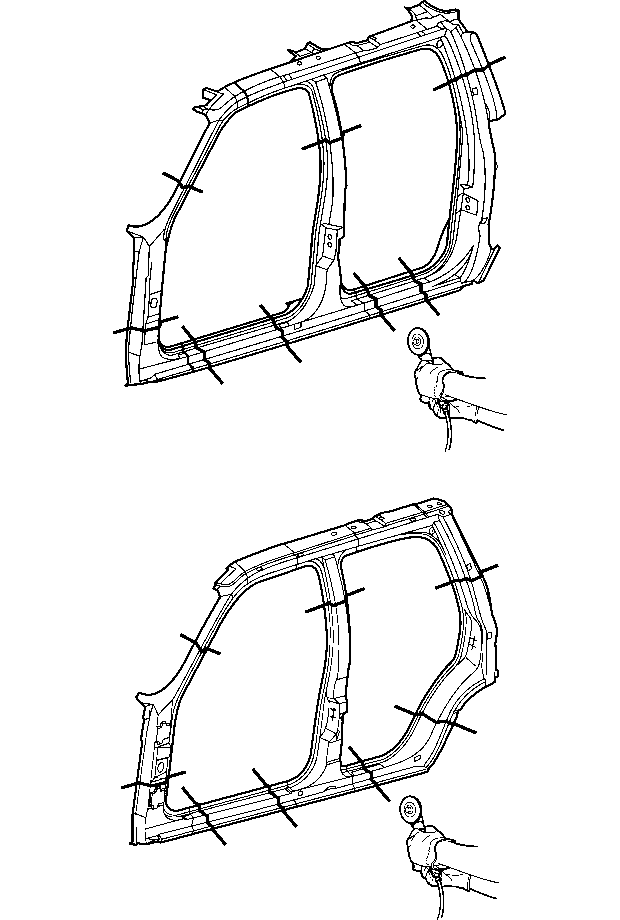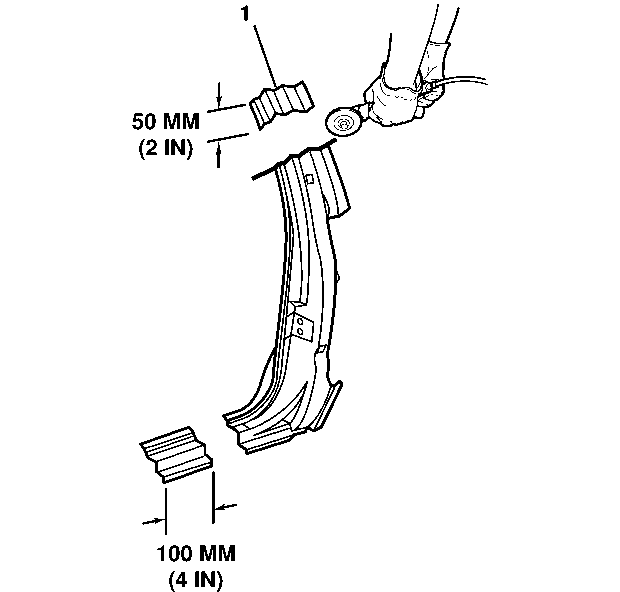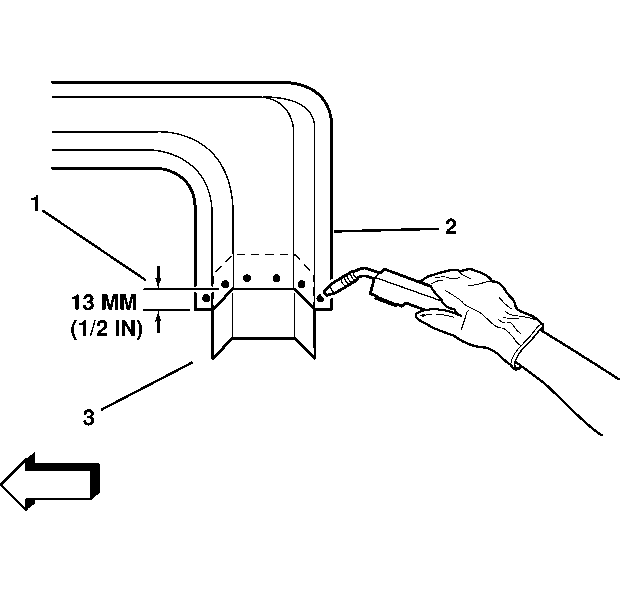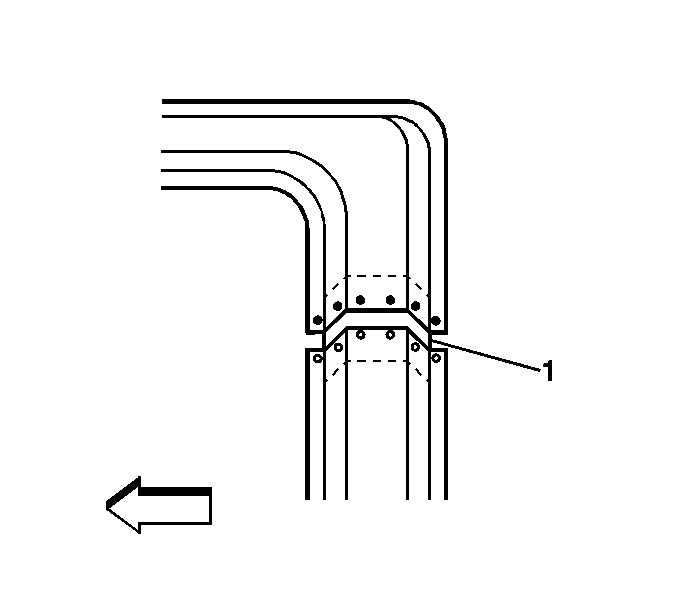Removal Procedure

- Remove all related panels
and components.
- Restore as much of the damage as possible to factory specifications.
- Note the location and remove the following as necessary:
| • | The anti-corrosion materials |
- Perform additional sectioning procedures as necessary. Refer to
Outer Door Frame Sectioning - Windshield Pillar
Center Pillar Replacement
Front Hinge Pillar Sectioning
Rocker Panel Replacement
General Door Frame Opening Sectioning
Important: Do not damage the inner panels or reinforcements.
- Cut the pillar in the locations where sectioning is to be performed.
- Locate and drill out all factory welds. Note the number and location
of the welds for installation of the service part.
- Remove the damaged pillar section.
Installation Procedure

- Cut the replacement pillar
in corresponding locations to fit the remaining original panel. The sectioning
joint should be trimmed to allow a gap of one and one-half times the
metal thickness at the sectioning joint.
- Create a 50 mm (2 in) backing plate (1) from
the unused portion of the service part. Trim the backing plate as necessary
to fit behind the sectioning joint.

- Perform additional sectioning
procedures as necessary.
Outer Door Frame Sectioning - Windshield Pillar
Center Pillar Replacement
Front Hinge Pillar Sectioning
Rocker Panel Replacement
General Door Frame Opening Sectioning
- Drill 8 mm (5/16 in) plug weld holes along the sectioning
cut on the remaining original part. Locate these holes approximately 13 mm
(1/2 in) from the edge (1) and spaced 40 mm (1 ½ in)
apart.
Caution: Foam sound deadeners must be removed from areas within 152.4 mm
(6 in) of where flame is to be used for body repairs. When
reinstalling foam sound deadeners, avoid inhaling fumes as bodily injury
may result.
Important: In any area damaged beyond recognition, space plug weld holes every
40 mm (1 ½ in) apart.
- Drill 8 mm (5/16 in) plug weld holes in the service panel
as necessary in the locations noted from the original panel (2) and
along the sectioning cut.
- Prepare all attachment surfaces as necessary.
- Apply weld-through primer to all bare metal surfaces.
- Fit the backing plate (3) halfway into the sectioning joint,
clamp and plug weld to the vehicle.

- Align the rear lock pillar
using three-dimensional measuring equipment.he sectioning joint should be
trimmed to allow a gap of one and one-half times the metal thickness
at the sectioning joint (1).
- Plug weld accordingly.
- To create a solid weld with minimum heat distortion, make 25 mm
(1 in) stitch welds along the seam with 25 mm (1 in)
gaps between them. Then, go back and complete the stitch weld.
- Clean and prepare all of the welded surfaces.
Important: Prior to refinishing, refer to the publication GM4901M-D-2000 GM Approved
Refinish Materials for recommended products. Do not combine paint systems.
Refer to paint manufacturer's recommendations.
- Apply the following as necessary:
| • | An approved anti-corrosion primer |
| • | The sound deadening materials |
| • | The sealers and The refinish materials |
- Install all related panels and components.




